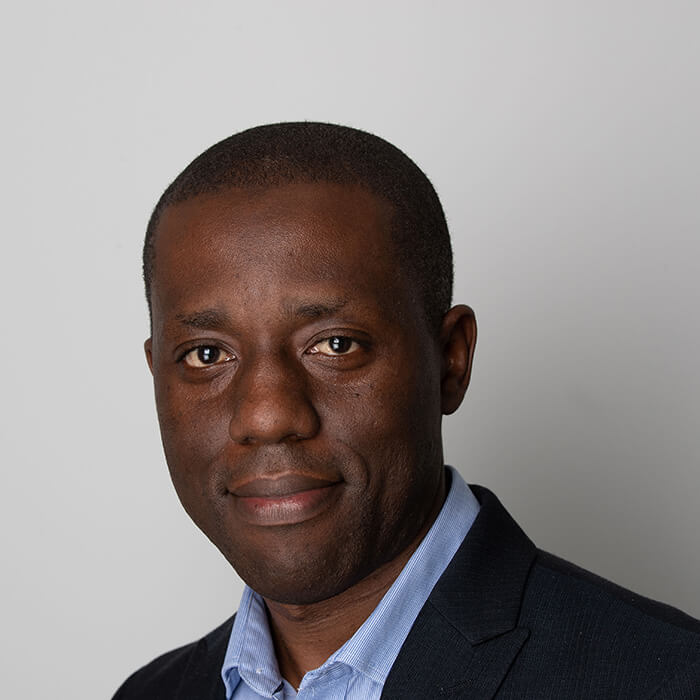Dr. Eric Djimeu Wouabe is an economist with close to 15 years of experience designing, conducting, supervising and disseminating evaluations of development programs across health, education, nutrition, infrastructure, and agriculture in Africa and Asia.
Dr. Djimeu is a fellow at Results for Development (R4D), where he contributes to multiple initiatives focused on improving social sector outcomes through rigorous evidence generation and adaptive learning. He previously served as the lead for innovative monitoring, evaluation, research, and learning (MERL) approaches in programs spanning global health, education, and nutrition. He led the Rapid Feedback Monitoring, Evaluation, Research and Learning (RF MERL) project in Mali and supported MEL activities under the Health Systems Strengthening Accelerator, a global USAID-funded initiative. In his current role, he continues to collaborate across programs at R4D to support the design and implementation of MEL strategies tailored to real-world complexity.
Dr. Djimeu’s work is grounded in a commitment to using evidence to drive decision-making and strengthen systems. Before joining R4D, he was a Senior Technical Evaluation Specialist at the Global Alliance for Improved Nutrition (GAIN), where he established a robust evaluation system and led impact evaluations for flagship nutrition programs. Prior to that, at the International Initiative for Impact Evaluation (3ie), he led seven research projects on HIV self-testing in Kenya and managed six large-scale impact evaluations across multiple countries.
Over the course of his career, Dr. Djimeu has advanced the use of evidence in policymaking and program implementation by working closely with governments, development partners, and research institutions. He has also contributed extensively to capacity building efforts, training young researchers, policymakers, and practitioners in evaluation methods, evidence synthesis, and applied econometrics.
Dr. Djimeu has published close to 20 peer-reviewed journal articles. His research spans impact evaluation, empirical methods, replication studies, cost-effectiveness analysis, and macroeconomic policy. He is currently expanding his expertise to machine learning and causal machine learning, exploring how these tools can strengthen evaluation practices and provide new pathways to generate actionable, policy-relevant evidence.
He holds a PhD and master’s degree in economics from the University of Auvergne Clermont-Ferrand I in France, and a BA in Economics from the University of Yaoundé II in Cameroon. He is a native speaker of Ghomala and French and speaks fluent English.














